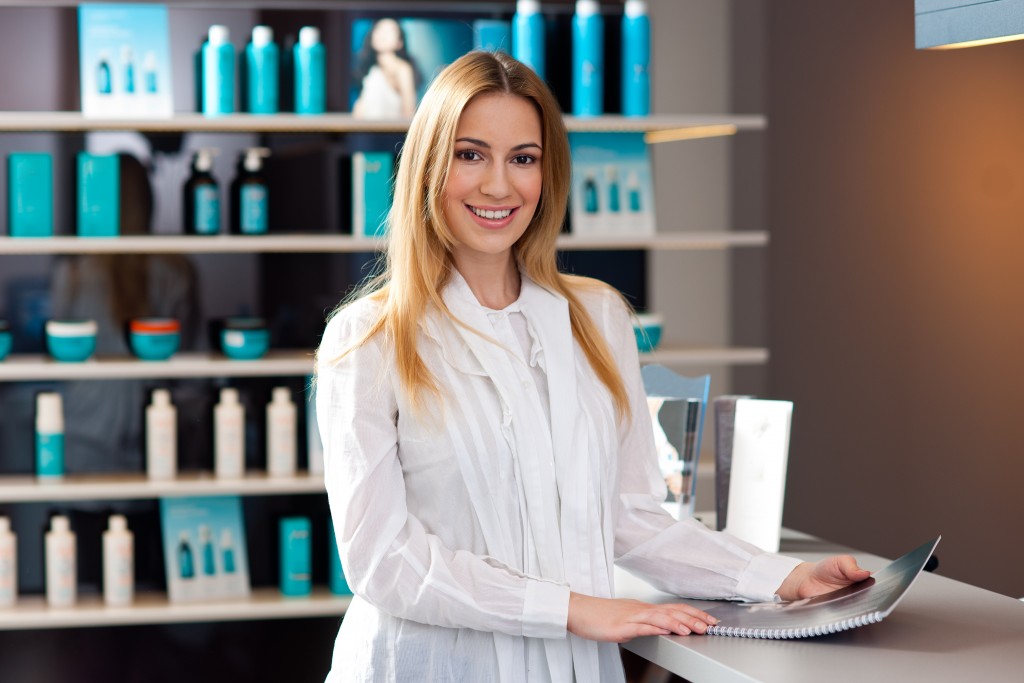Cosmetics and beauty products go through trends just like any business. Popular trends often include innovative products or celebrity beauty treatments. But sometimes trends become popular because of practical considerations.
There’s been a recent trend with homemade and artisanal beauty products over those made by large companies. This trend has become popular because consumers are becoming more and more discerning when it comes to their cosmetics. They’re putting safety considerations first and you can use this to your advantage.
Homemade Goodness
Consumers prefer artisanal and homemade beauty products because there’s a growing distrust with big cosmetics companies. The United States beauty industry is notoriously under-regulated and operates with little oversight. The Food and Drug Administration doesn’t require cosmetic businesses to undergo their approval process. They also only regulate product labeling and color additives.
And the FDA has banned or controlled only 11 chemicals for use in cosmetics manufacture. Compare that to the over 1,300 substances the European Union has prohibited, which is why American consumers are more apprehensive.
Artisanal cosmetics are becoming popular because of their composition and simple recipes. Homemade beauty products often use fewer chemicals and rely on more organic substances. This makes them more appealing to consumers who want safer and more natural beauty products.
Whether you want to make a tidy profit selling your own cosmetics brand or simply want to make some for personal uses, here are the equipment you need to set up your own lab and a few things you should consider.
Essential Equipment
Your home beauty lab needs a lot of equipment, but the following are must-haves if you want to make safe and reliable cosmetics.
Beakers
Some beauty products involve delicate mixtures and precision. You can’t mix them in a kitchen bowl or a plastic tub and expect to get great results. Even mild chemicals and astringents can corrode containers and become contaminated. You need laboratory-grade beakers with exact measuring lines made of specialized glass for safety purposes.
Water Bath
Some cosmetic products need to be heated carefully to thicken or to properly finish. However, you can’t put them directly on top of an open flame or else they might catch fire. It’s also almost impossible to monitor the exact temperature of a stove. For these reasons, you should get a laboratory water bath. These devices help you heat mixtures to precise temperatures for any length of time. Their materials and design also reduce the risk of contamination to your products.
Protective Equipment
You need to ensure your safety when making your beauty products. Basic protective equipment includes gloves when handling chemicals, face masks to prevent breathing in irritants, and face shields to protect your face from vapors and spills. Protective equipment also ensures you don’t contaminate your cosmetics during the manufacturing process.
Scales
You must precisely measure the ingredients of your artisanal cosmetics to ensure their effectiveness. A digital weighing scale is necessary to get the most accurate measurement. Your home laboratory needs at least two weighing scales to make your process more convenient. This will let your measure up to two substances faster and reduce the risk of cross-contaminating ingredients.
Sanitizing Tools
Cleanliness is vital when manufacturing cosmetics. You must have materials to ensure you’re clean and that your equipment and surfaces are sanitized. For your personal cleanliness, you need handwashing liquid and towels for drying. Your beakers and other material can be kept clean with regular dishwashing soap, but you should also disinfect them regularly with alcohol. Heat-resistant equipment can be steamed for added measure.
Lab Considerations
Aside from equipment, you must think about the following factors when setting up your artisanal cosmetics laboratory.
Space
Your laboratory must have its own room. The various chemicals and ingredients used for cosmetics manufacturing are sensitive. You shouldn’t be making them in your kitchen or bathroom to avoid contaminating your food and the product. Your lab equipment also needs a lot of room and won’t comfortably fit in a shared space. A converted garage or a spare room are the perfect spaces for your cosmetics lab.
Ventilation

Cosmetics create a lot of scents and fumes. Adequate ventilation systems are essential for your safety. Even with personal protective equipment, certain smells and fumes can be overwhelming without air ducts or a ventilation fan. Heated lab equipment can also be stifling or malfunction without proper airflow.
Utilities
Your lab will have plenty of equipment that need electric sockets. Ensure that all sockets are properly grounded and that your lab space has the necessary wiring for support all your equipment. You would also need easy access to water and a drain for cleaning purposes.
When you’re manufacturing cosmetics at home, the right equipment and lab design will ensure your products are as safe as they are effective. With these elements, you can build your brand on a platform of safety.
